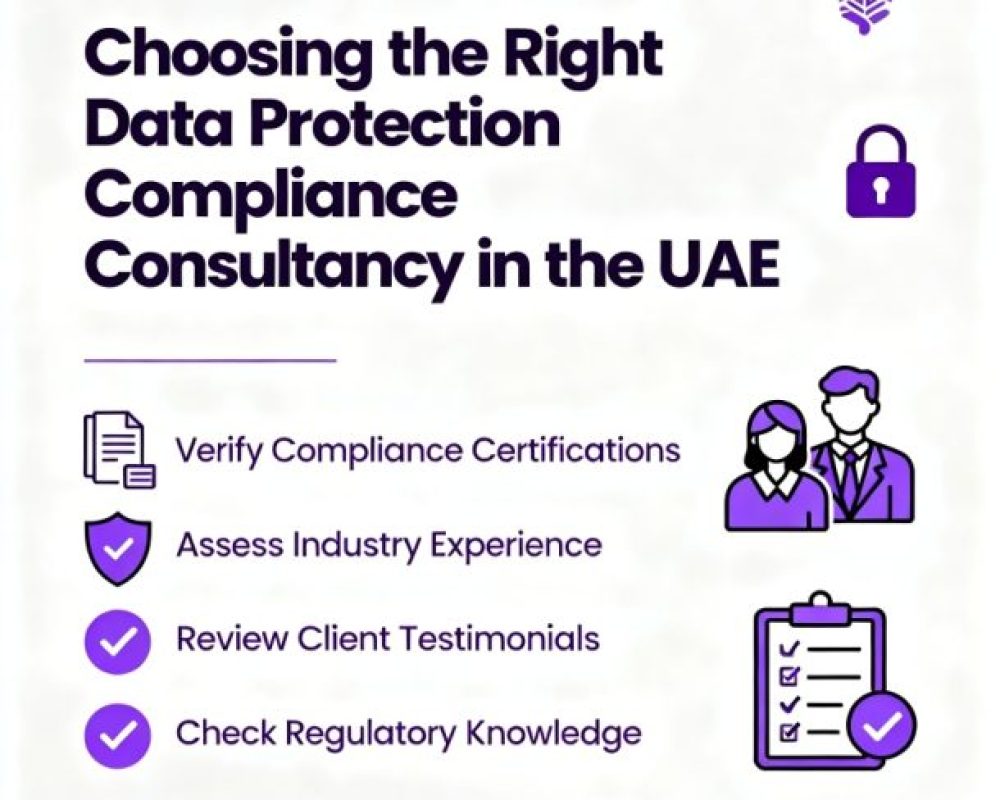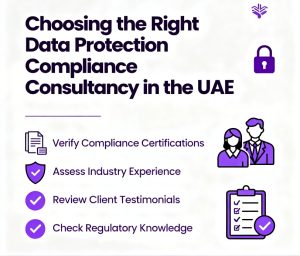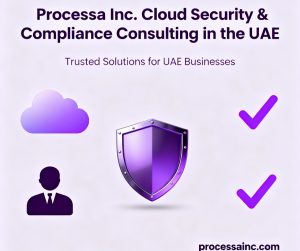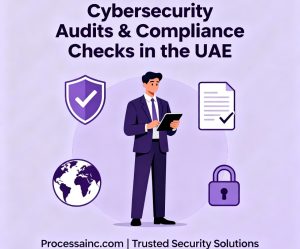Introduction
In today’s fast-paced digital era, businesses in the UAE are increasingly dependent on data to drive operations, enhance customer experiences, and fuel growth. However, as data becomes more valuable, the responsibility to safeguard it grows exponentially. Choosing the right Data Protection Compliance Consultancy is no longer optional — it’s a crucial decision that defines your organization’s trustworthiness, security, and regulatory standing.
With stricter data protection laws, evolving compliance frameworks, and global privacy regulations influencing UAE policies, businesses must partner with experts who can navigate these complexities seamlessly. But how can you identify the right consultancy for your business? Let’s explore the essential factors to consider and how the right partner can transform your compliance journey.
Understanding the Role of a Data Protection Compliance Consultancy
Before diving into the selection process, it’s important to understand what a Data Protection Compliance Consultancy actually does. These consultancies specialize in assessing your organization’s data management practices, identifying compliance gaps, and implementing strategies to align with legal requirements such as UAE’s Personal Data Protection Law (PDPL) and global standards like GDPR.
A reputable consultancy helps businesses:
-
Conduct data protection impact assessments
-
Establish data governance frameworks
-
Draft and implement privacy policies
-
Manage risk mitigation strategies
-
Ensure ongoing compliance monitoring
Moreover, these consultancies offer training and audits, ensuring that your employees understand compliance obligations while your systems remain secure against potential breaches.
Why UAE Businesses Need Professional Guidance
The UAE’s data protection landscape is evolving rapidly, with new regulations designed to promote digital trust and data privacy. Consequently, compliance is not just about avoiding penalties — it’s about demonstrating accountability, transparency, and customer respect.
However, without expert support, navigating the technical and legal details can be overwhelming. This is where a Data Protection Compliance Consultancy steps in to simplify the process. By offering both legal and technical expertise, consultants help organizations develop robust data protection strategies that align with the UAE’s data laws and international best practices.
Additionally, as businesses increasingly adopt cloud technologies and AI-driven systems, compliance requirements become more complex. Therefore, having a professional consultancy ensures that your organization stays ahead of regulatory changes, minimizing risks and reputational damage.
Key Factors to Consider When Choosing the Right Consultancy
Selecting a consultancy requires careful evaluation. Here are some crucial factors to keep in mind:
1. Expertise and Experience
Look for consultancies with a proven track record in handling data protection and privacy projects across different industries. The right Data Protection Compliance Consultancy should understand the UAE’s legal framework and the nuances of international compliance laws.
2. Technical Capabilities
While legal understanding is essential, so is technical proficiency. Ensure the consultancy has the expertise to assess IT systems, perform vulnerability assessments, and recommend practical cybersecurity controls.
3. Customized Solutions
Every business is unique. A good consultancy should offer tailored strategies instead of generic solutions. They should evaluate your organization’s size, structure, and data sensitivity to craft a plan that fits your needs.
4. Certifications and Partnerships
Check if the consultancy is certified by recognized authorities such as ISO, GDPR, or regional regulators. Accreditation adds credibility and assurance that they follow industry best practices.
5. Transparency and Communication
Clear communication is vital. The consultancy should be able to explain complex compliance requirements in simple terms, ensuring that your management and employees understand every step of the process.
Benefits of Choosing the Right Consultancy
Partnering with a skilled Data Protection Compliance Consultancy offers multiple advantages:
-
Regulatory Assurance: Ensures adherence to local and global data protection laws.
-
Reputation Management: Builds customer trust through transparent and ethical data handling.
-
Operational Efficiency: Reduces time and resources spent on manual compliance efforts.
-
Breach Prevention: Strengthens data security frameworks to minimize the risk of cyberattacks.
-
Continuous Improvement: Offers regular updates and training to maintain ongoing compliance.
Furthermore, a trusted consultancy provides proactive insights, helping your business anticipate changes in legislation before they become challenges.
The Process of Working with a Consultancy
Choosing the right consultancy is just the first step; understanding how they operate is equally important. Typically, the process involves:
-
Initial Assessment: The consultancy evaluates your current compliance status.
-
Gap Analysis: Identifies areas that need improvement or alignment with data laws.
-
Strategy Development: Customizes a roadmap to achieve compliance efficiently.
-
Implementation: Establishes necessary policies, controls, and documentation.
-
Ongoing Monitoring: Conducts audits and updates to maintain continuous compliance.
Through this structured approach, businesses can confidently navigate compliance challenges while ensuring that their data management practices remain secure and lawful.
Questions to Ask Before Hiring
Before finalizing your consultancy partner, ask these vital questions:
-
What specific industries have you worked with in the UAE?
-
How do you ensure compliance with both UAE and international data protection laws?
-
Can you provide examples of successful projects or references?
-
What is your approach to data breach response and incident management?
-
How do you keep clients updated with evolving regulations?
These questions help assess whether the consultancy is well-equipped to meet your organizational requirements effectively.
The Importance of Local Expertise
While international standards are crucial, local expertise is indispensable. UAE’s data protection framework includes unique aspects influenced by regional governance and culture. A consultancy that understands these nuances can better interpret and apply the regulations, ensuring full compliance.
Additionally, local consultancies often maintain relationships with regulators, making it easier for businesses to stay compliant with minimal disruption.
Conclusion
Choosing the right Data Protection Compliance Consultancy in the UAE is not just about fulfilling legal obligations — it’s about building a foundation of trust, security, and resilience. With the right consultancy, businesses can confidently navigate regulatory complexities, protect customer data, and maintain a competitive edge in the digital economy.
For instance, Processa Inc Information Security Services has been recognized for its specialized approach in helping businesses align with UAE’s data protection regulations while maintaining operational efficiency. Their strategic insight and industry expertise make them a reliable choice for organizations seeking comprehensive compliance solutions.
Ultimately, whether you are a small enterprise or a multinational corporation, investing in professional guidance from cybersecurity compliance audit firms in Dubai ensures not just compliance but long-term data integrity. Therefore, aligning with a trusted cybersecurity partner can make all the difference in securing your digital future.
Frequently Asked Questions (FAQs)
1. What is the role of a Data Protection Compliance Consultancy in the UAE?
A Data Protection Compliance Consultancy assists businesses in understanding, implementing, and maintaining compliance with UAE and international data protection laws. They help manage risk, ensure privacy policy adherence, and strengthen overall data governance.
2. Why is data protection compliance crucial for UAE businesses?
Compliance helps protect sensitive data, build customer trust, and avoid legal penalties. Moreover, it enhances brand reputation and ensures long-term operational sustainability in a data-driven economy.
3. How often should businesses conduct a data protection audit?
It’s advisable to conduct audits annually or whenever there are significant changes in your data systems or regulations. Regular reviews ensure that your data protection framework remains up to date and effective.




